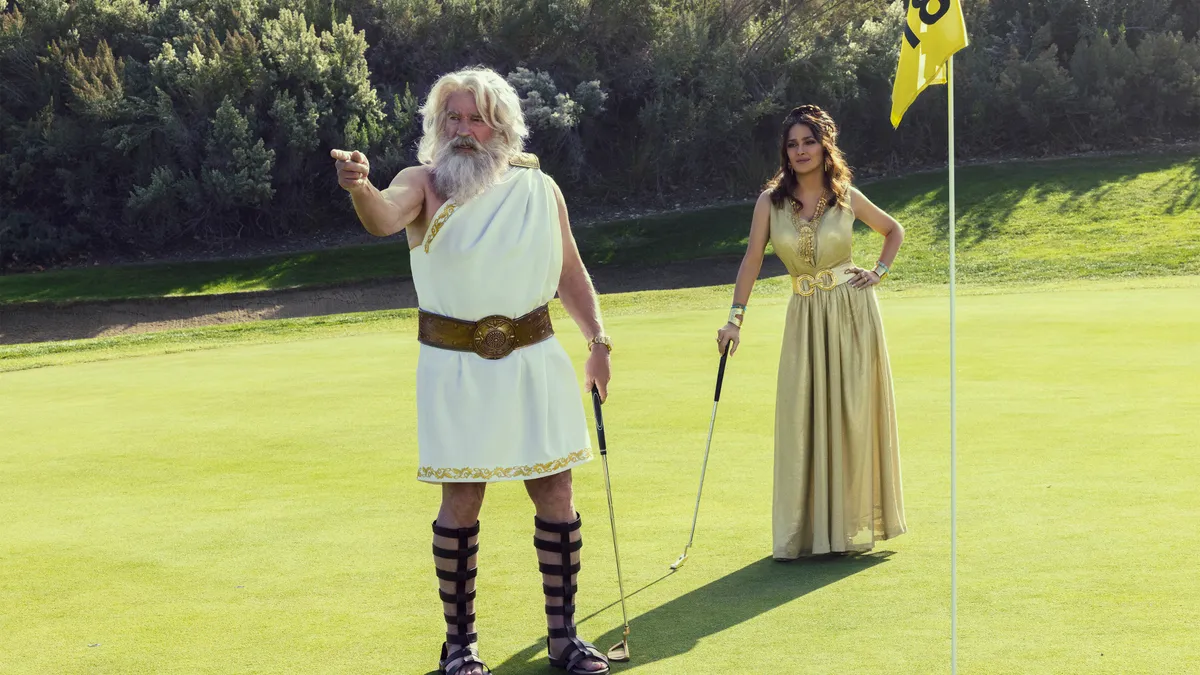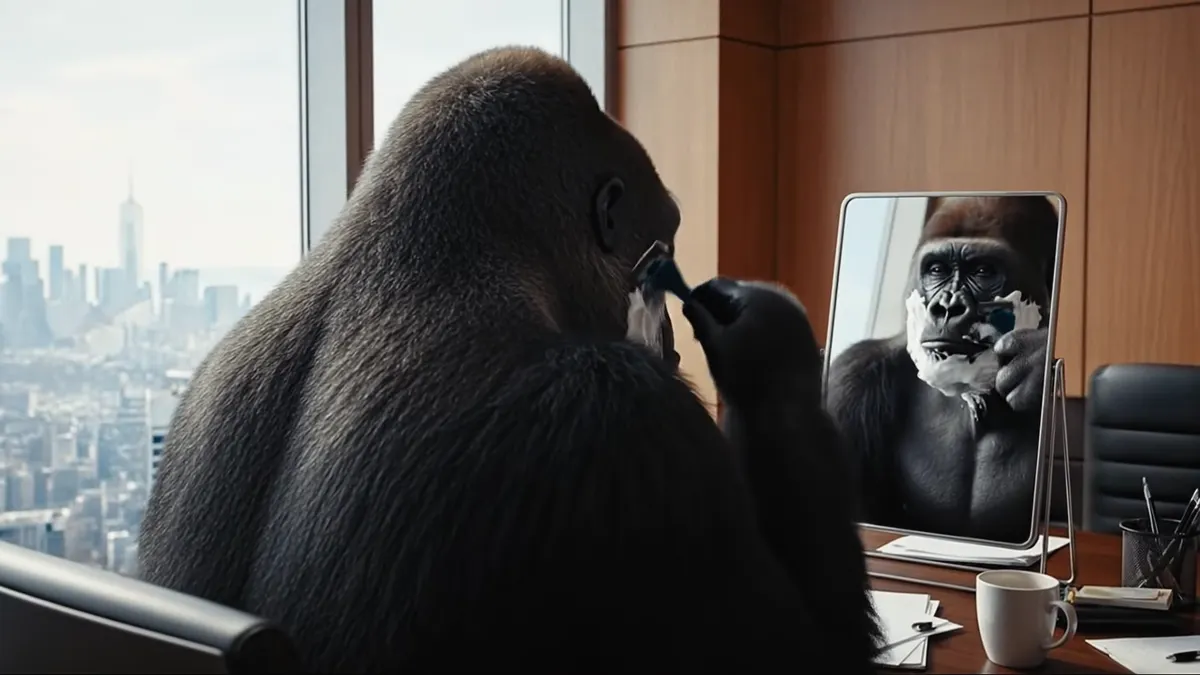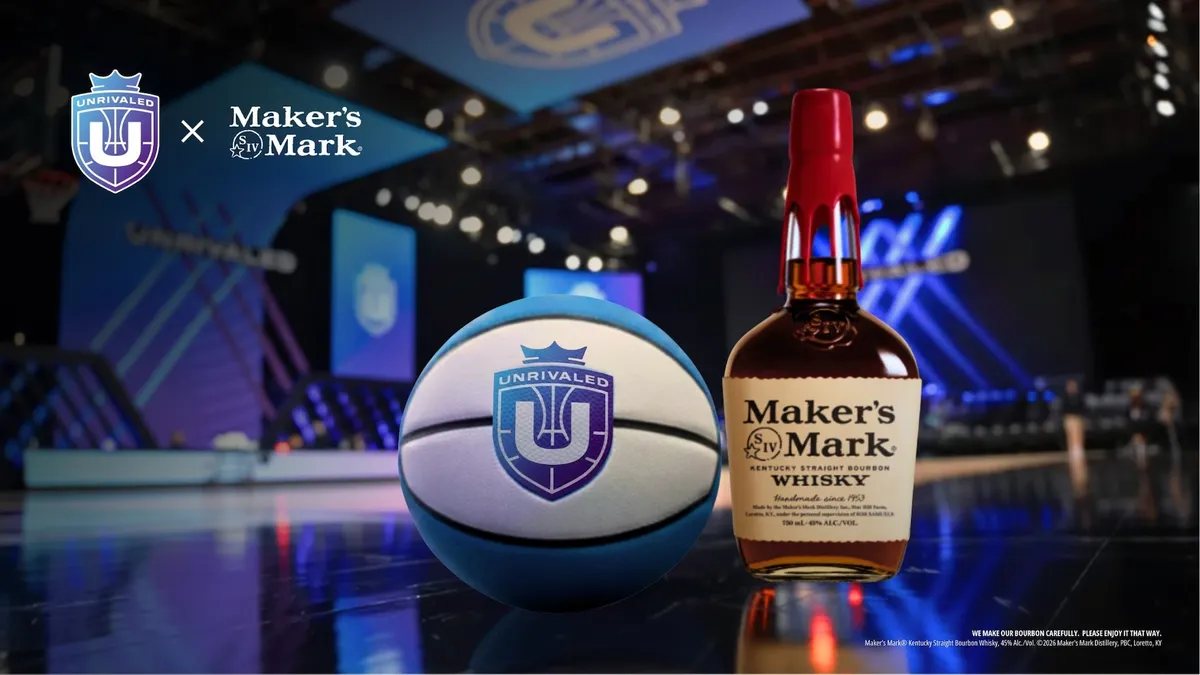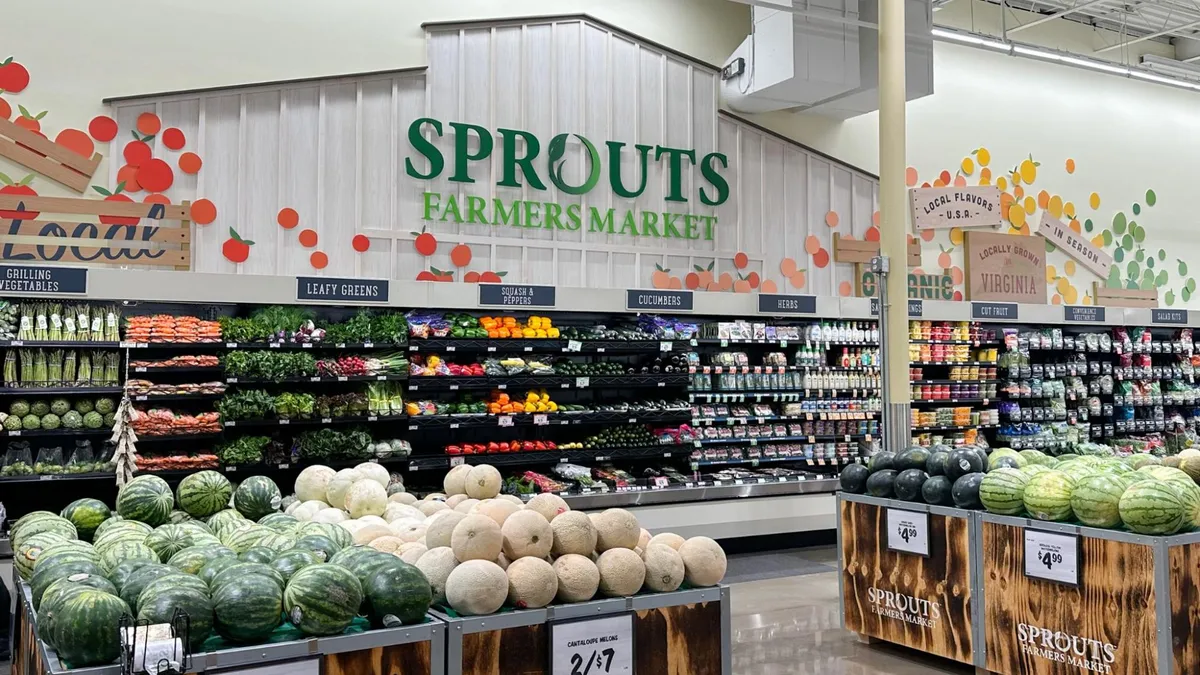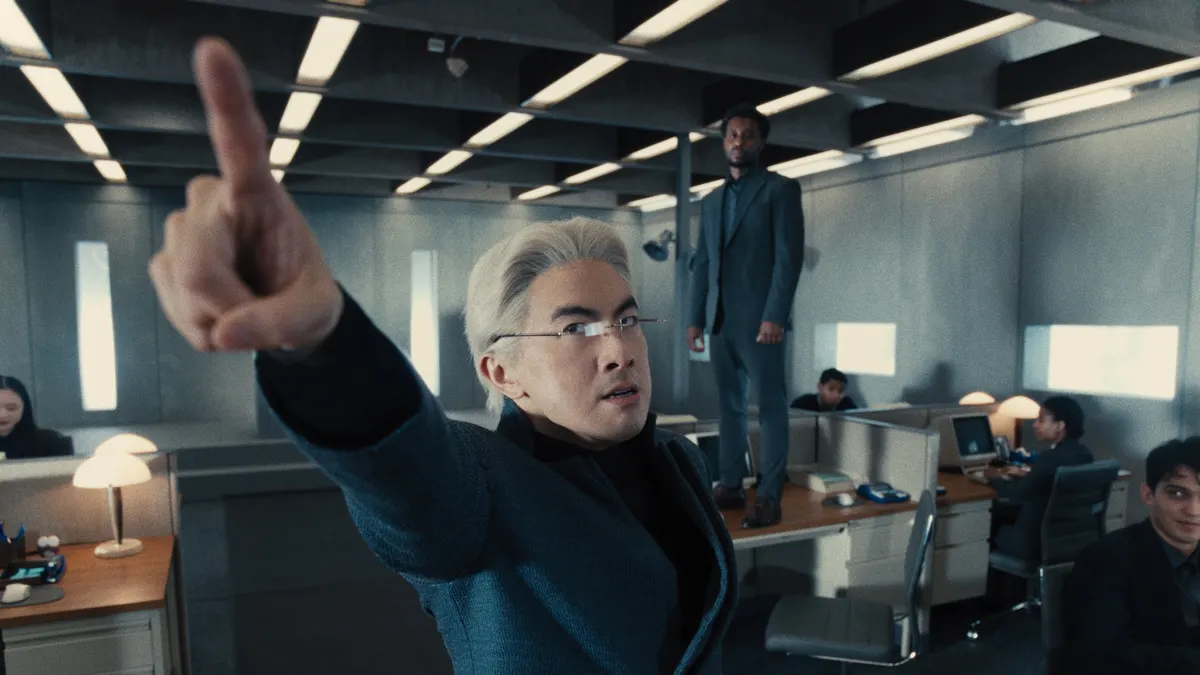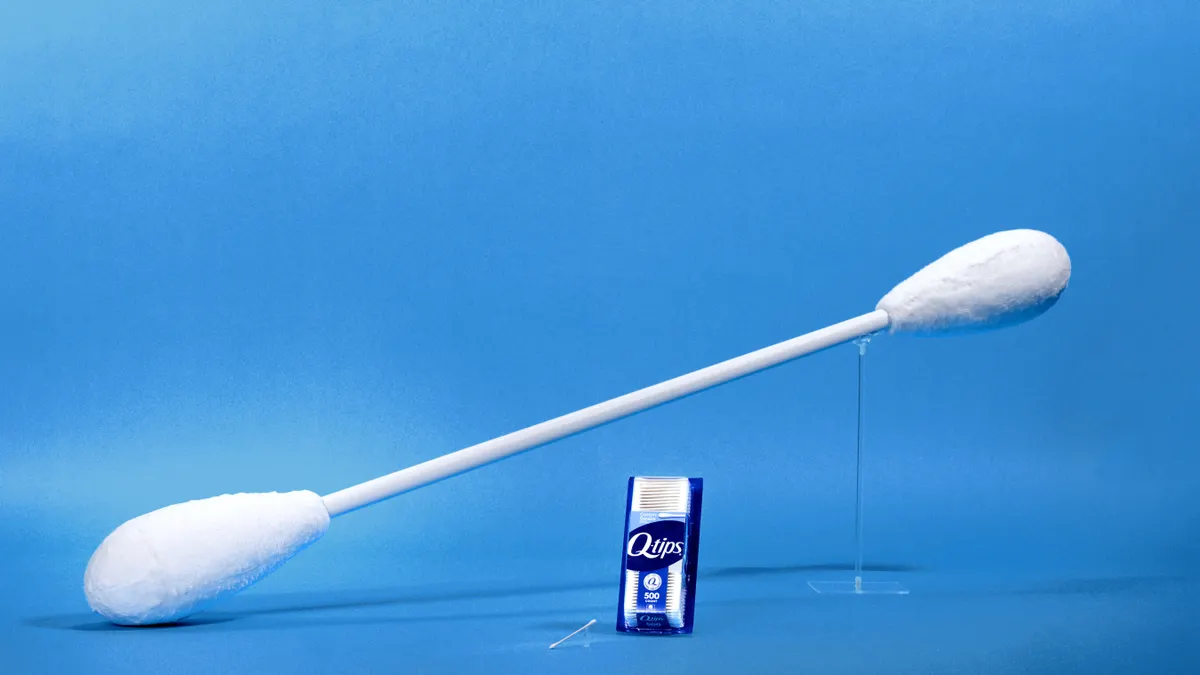The Super Bowl rarely goes off without a hitch in a good year, let alone a period of volatility. The NFL is currently caught in another controversy around racial discrimination. Marketers are jumping through production hoops to get their ads off the ground. And the coronavirus is still killing thousands of people in the U.S. each day. Similar problems cast a cloud over last year's game, when brand regulars like Coca-Cola and Budweiser skipped the pricey commercials to prioritize other initiatives, including promoting COVID-19 vaccines. It was a decidedly muted affair, more notable for its misfires than hits on the advertising front. Viewer turnout was low, indicating the pandemic threw cold water on the crown jewel of sports programming.
Yet, this year's event, which pits the underdog Cincinnati Bengals against the Los Angeles Rams at the latter's home turf of SoFi Stadium, feels markedly different. Humor and an eye toward a brighter future have animated the usual outpouring of teaser campaigns, while the game itself is taking on a blockbuster quality befitting the Hollywood-adjacent venue. For consumers run down by nearly two full years living under the pandemic, a chance to simply unplug and soak in the spectacle on Sunday is appealing. Advertisers have picked up on the sentiment and are looking to deliver an appropriate reprieve.
"The thing that I've noticed coming through the work that I've seen come out so far is this sense of escapism," said James Denman, head of innovation and marketing at agency Yard NYC. "Everything just feels lighter."
Marketers clearly expect a higher degree of excitement than in 2021. Budweiser is back, part of an ambitious play that will see parent Anheuser-Busch command four minutes of national airtime across six of its brands. Taco Bell will run its first Super Bowl ad in five years, BMW its first in seven. Lay's is breaking an even more notable 17-year hiatus. That's not to mention the flock of newcomers in the cryptocurrency and sports betting spaces that are vying for wider appeal through the biggest media stage in town.
Robust advertiser demand could be fueled by a number of factors. Stadiums are again packed to capacity, helping energize on-field excitement. Fan enthusiasm has been reflected in ratings, with the NFL drawing its largest average regular-season audience since 2015. Key playoff games saw viewership increase up to 20% over the year prior. PredictHQ estimates the grand finale will attract about 117 million viewers, a new high.
But brands could also be anticipating something larger than the sport itself: The chance to kick off the next chapter for a society eager to put the worst of the pandemic behind.
"The overall theme, whether it's right or not, is this idea of, 'We're back,'" said Jason Harris, chief executive of creative agency Mekanism. "We might look back at this milestone, as part of the pandemic, as a bellwether of when we kind of got our mojo back."
Stars align
Though some brands wait until game day to showcase their full creative, the Super Bowl ads released thus far have generally landed on the sunnier end of the spectrum. The tonal shift is noteworthy, as companies in recent years have put forward more cause-oriented campaigns that tackle touchy topics like immigration.
"Pandemic aside, we've had really a decade, in truth, of quite profound, heavy, emotionally driven, expansive spots about America," said Denman. "The pandemic, almost by the very nature of it, dialed that up."
A swing back to broader cracks at humor is complemented by a raft of celebrity cameos. Lay's is playing into the well-established comedic pairing of Paul Rudd and Seth Rogen, while Amazon's commercial shows A-list couple Scarlett Johansson and Colin Jost. The ad nods to the e-commerce giant recently acquiring the exclusive streaming rights to Thursday Night Football as part of an 11-year contract that starts next season.
Michelob Ultra, another Anheuser-Busch label, has a 60-second hero spot with enough star wattage to fill its own commercial block: Peyton Manning, Alex Morgan, Jimmy Butler, Nneka Ogwumike, Brooks Koepka, Steve Buscemi and Serena Williams all play a role.
Automakers meanwhile are using household names as a bridge to familiarize drivers with new car concepts. BMW's campaign taps Arnold Schwarzenegger and Salma Hayek as the Greek gods Zeus and Hera, who give the brand's all-electric BMW iX a spin after trading Mount Olympus for the retired life in Palm Springs.
"It is going to be, I would say, more product-focused and more in getting back to normal times," said Jimmy Spano, vice president, director of video investment, at Dentsu's Carat, of Super Bowl LVI.
Threading the needle with a light-hearted message was more difficult last year in the aftermath of an acrimonious presidential election and before the broader distribution of vaccines loosened some pandemic restrictions. But pairing celebs with jokes has proven to be a tried-and-true strategy despite other bumps int he road.
Several creatives spoken to for this piece pointed to a Jeep ad from 2020 as the Super Bowl standout in recent memory. In the spot, Bill Murray reprised his role from "Groundhog Day," adding a nostalgic element that's manifested in 2022 ads that call back to movies like "Austin Powers" and "The Big Lebowski." Jeep's campaign last year, a two-minute epic that featured Bruce Springsteen making a solemn plea for America to find common ground, was considerably less well-received.
"Trying to just have a little fun and be light and make people laugh is a great route to go, and there are fewer potholes to step in," said Michael Stelmaszek, chief creative officer at Ludwig+. "A great ad commenting on where we are as a society may be very well-intentioned, but given the divide that exists in the country, odds are, you're not going to please as many people as you'd hope to."
Over-the-top
Of course, famous faces are nothing new to the Super Bowl as brands try to engage pop culture-savvy consumers and make the most of their hefty media buys. NBCUniversal, the game's broadcaster for 2022, claimed some 30-second ad placements fetched record-high prices of $7 million.
"This was a year we saw the sales part of it — selling the actual commercial inventory — move faster and earlier than we've ever seen," said Spano.
Super Bowl LVI, in turn, carries an air of extravagance that's distinctive in an otherwise staid media environment. The Winter Olympics, which NBCUniversal also hosts, have so far generated little discussion and weak ratings. Sponsors at the same time have kept relatively quiet as this year's host country creates a political minefield.
"If you look at the Olympics ratings with no fans, you feel like you can catch the sort of summary of what happened that day," Harris said. "There's less of that shared excitement."
It's a striking contrast with what's expected at the Super Bowl, including for the sideshow entertainment. Pepsi, the longtime halftime sponsor, is trotting out five artists for the mid-game musical act, many of whom have ties to West Coast culture. Kendrick Lamar, Dr. Dre, Snoop Dogg, Mary J. Blige and Eminem will perform.
"The thing that I've noticed coming through the work that I've seen come out so far is this sense of escapism. Everything feels lighter."

James Denman
Head of innovation and marketing, Yard NYC
Setting the game in sunny Los Angeles contributes further to the feeling of a getaway for viewers stuck in the middle of a harsh winter.
"Everything about this is going to feel Hollywood over-the-top," said Steve Merino, chief creative officer at Aloysius Butler & Clark.
Changing of the guard
As much as Super Bowl LVI has welcomed old favorites — not just in Budweiser, Lay's and Taco Bell, but also returning characters like the E-Trade baby — it's also seen a fresh crop of advertisers that are drawing attention.
Crypto.com, FTX and eToro represent a wave of cryptocurrency platforms as the category tries to break out of its financial niche. Many have dubbed Sunday's game the "Crypto Bowl." Sports betting, sure to experience a surge of activity around the event, will see national ads from brands like Caesars Sportsbook as well.
"When you see crypto brands advertising in the Super Bowl, what they're doing is paying for relevancy. It legitimizes the brand."

Jason Harris
CEO, Mekanism
A freshman class on the marketing front aligns with changes in the NFL itself, as legacy players step back or pass on the torch.
"It's a generational thing," said Yard NYC's Denman. "[Tom] Brady's obviously retired, Aaron Rodgers didn't make it through. The old guard, as it were, of the NFL are moving on to new pastures."
The noteworthy number of newcomers is indicative of the enduring value of the Super Bowl at a time when traditional TV has otherwise been unseated by streaming alternatives. Even digital brands that position themselves around disruption can't resist the pull of one of the most old-school media formats when trying to make an impression on the American public.
"When you see crypto brands advertising in the Super Bowl, what they're doing is paying for relevancy," said Mekanism's Harris. "It legitimizes the brand."
Of course, failing to create resonance poses a steep risk. And plenty of media watchers have drawn comparisons between the current crypto craze and the dot com boom of yore, another tech trend that saw an outpouring of new Super Bowl advertisers that went kaput not soon after.
"If you have a really bad ad, and you're trying to use the Super Bowl as this coming-out platform, you almost wish you saved the money and didn't do anything," said Harris.
That said, it's perhaps fitting that industries predicated on making a gamble are seeing their Super Bowl come up at a point of uncertainty. Digital-first marketers have also taken to experimenting more within the confines of TV, with some standout success. Reddit last year received accolades for a five-second ad that emulated a post on the social network glitching out the broadcast. It was the type of bold media play that kept people talking long after the clock ran out.
"Comedians say a great joke is a surprise," said Stelmaszek. "The best moments in the Super Bowl have always been the things that we didn't see coming."
Correction: The full details of a source's name and title were inadvertently left off a previous version of this article. Steve Merino is chief creative office at Aloysius Butler & Clark.


